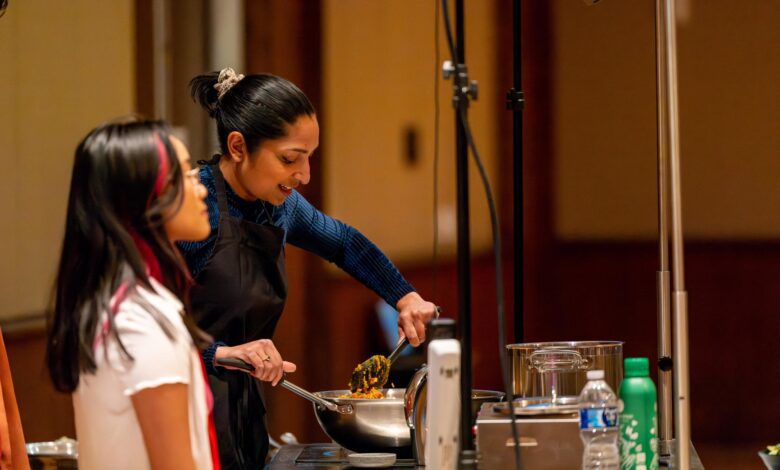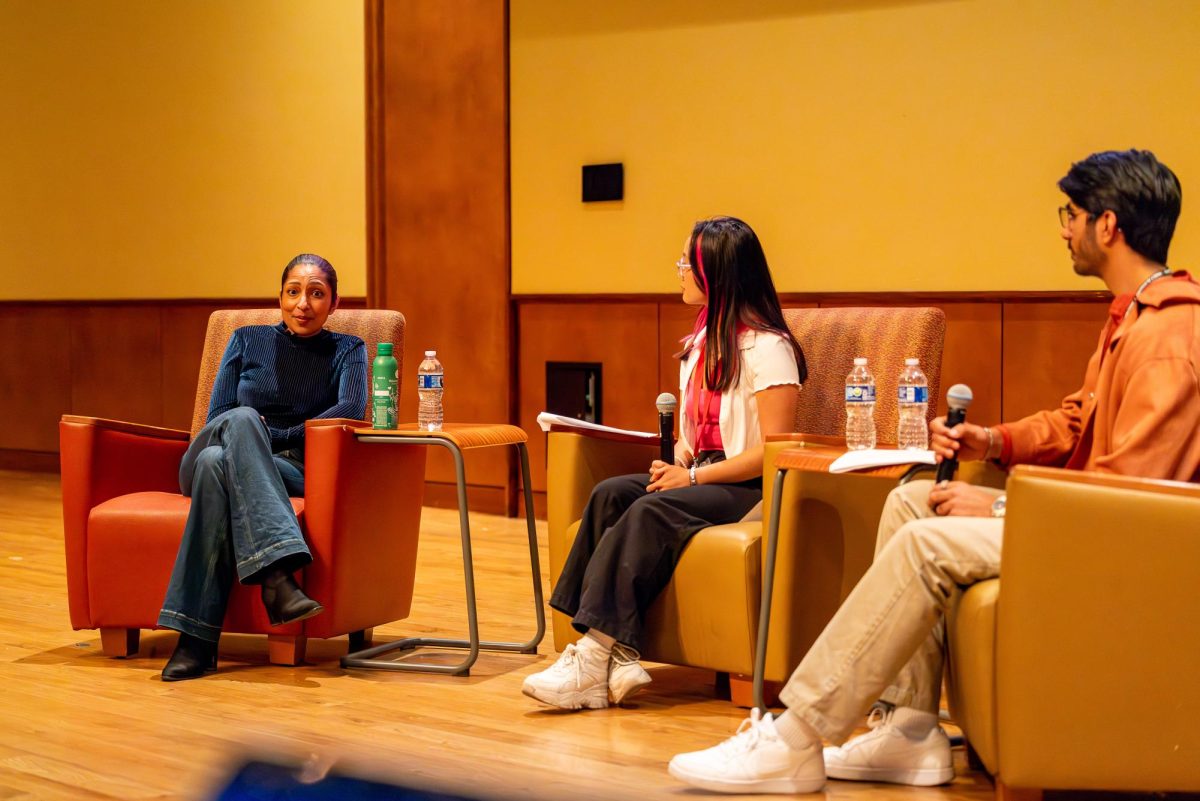
New York Times food reporter Priya Krishna shares personal journey in APIDA Heritage Month keynote event – The Badger Herald
Acclaimed cookbook author and New York Times bestselling authorGood reporter Priya Krishna delivered the keynote address for Asian Pacific Islander American Heritage Month at the University of Wisconsin on Monday. Krishna gave a live cooking demonstration as part of her talk, during which she participated Lessons learned from her culinary journey. This event is organized by the APIDA Heritage Month Planning Committee in collaboration with the Wisconsin Federation Kitchen Directorate.
Krishna was on 2021 Forbes 30 Under 30 List, and is the author of the best-selling children’s cookbook “Indian-ish.” The audience asked her questions as she demonstrated her efficient and accessible cooking style.
“The way I write recipes is to maximize labor and minimize effort,” Krishna said. “I’m a busy cook. I don’t like to spend a lot of money on groceries to make a dish that feeds one person for a day. These are all things I really keep in mind when I design a recipe.” .
Recalling how her interest in food began as a child, Krishna said she was obsessed with studying menus from around the world – a hobby that later inspired her career path. But Krishna said her immigrant family didn’t understand her passion, which caused tension at first.
“I lied and told my father that I had applied to JP Morgan and Goldman Sachs, but I never applied. I felt very misunderstood. There was a generational divide between us and it was very difficult,” Krishna said.
Krishna said working on her cookbook was a big part of what began to change her parents’ perception of her work. She said she was grateful for the opportunity to feature her mother’s recipes in her book.
Krishna said she wanted her cookbook to reveal how cuisines in communities of color are more accessible than they might seem, where simple, everyday food looks different depending on how one was raised. She hopes people will turn to her cookbooks and feel encouraged to try diverse flavours, building greater social and political inclusion and engagement.
“We live in a world where the ability to assert yourself as a person of color, to assert your right to exist is literally under attack,” Krishna said. “For me, food is inherently linked to politics, and one cannot exist without the other.”
Krishna stressed that there is a need for more inclusion. She said food serves as a catalyst for social and political engagement, building conversation for political change, and shared the importance of cultural representation and accessibility in the food industry to build cross-cultural understanding and appreciation.
While achieving success, Krishna admitted to facing challenges as a woman of color in the male-dominated world of restaurants, and how there are still barriers in the food world where only certain types of chefs and cuisines are considered worthy of coverage.
She strives to change these preconceptions by advising students of color in the room to ask what they are worth and negotiate salaries with confidence.
“Now, the food world is really changing,” Krishna said. “The types of people who write about food are changing. And the people we want to write about are changing too. I feel that if we can approach things from a place of curiosity and respect and not as you think you know best, the world will be a better place.”
New York Times food correspondent Priya Krishna delivers APIDA Heritage Month keynote. April 22, 2024.




